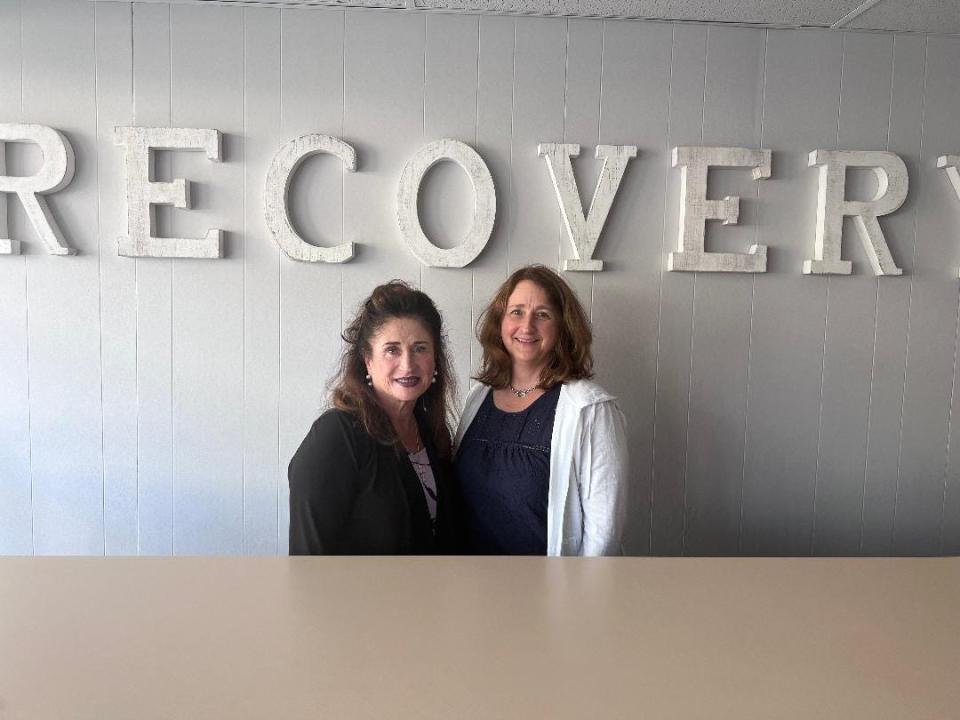State funding allows Alyssa's Place in Gardner to expand hours, hire additional staff
As Gardner prepares to observe National Alcohol and Drug Addiction Recovery Month in September, officials at Alyssa’s Place Peer Recovery Center have announced an expansion of their hours and services.
According to Michelle Dunn, who founded the volunteer-driven peer recovery and resource center with her husband, David, following the opioid overdose death of their daughter, Alyssa, in 2013, Alyssa’s Place recently received additional state funding for at least the next five years.
The contract, which was awarded by the Department of Health’s Bureau of Substance Addiction Services, comes with two two-year renewal options, which means the nonprofit center could be fully funded at about $700,000 per year through 2032, Dunn added.

More: State funding is a 'Game changer'
In addition, the center, which is overseen by GAAMHA, was recognized as a “tier three” operation, meaning it could expand hours of operation from 50 to 70 hours per week. The center will now be open Monday through Thursday from 9 a.m. until 8 p.m.; Friday from 9 a.m. to 7 p.m.; Saturday from 9 a.m. until 5 p.m.; and Sunday from noon until 8 p.m.
“The purpose of Alyssa’s Place is to support people in achieving and sustaining their recovery and thrive in their community of choice,” said Jackie Blanchard, program director and recovery coach supervisor at the center. “For us, the expansion of the hours gives us the ability to help more people in working toward their goals.”
The extra hours also means the center will be able to hire three new full-time staff positions, Dunn said.
Alyssa's Place expands Central Street offices
The center’s Central Street interior space has also expanded, Dunn said. Alyssa’s Place recently moved its administrative offices into the former travel agency next door, meaning the center now spans three storefronts downtown.
“The staff has nicknamed the new space ‘Recovery Island,’” Dunn added.
Shawn Hayden, vice president of GAAMHA, said it had been a privilege to watch the maturation of Alyssa's Place over the years.
"We were so proud to be the very first 'pop-up' peer recovery center in Massachusetts that operated solely on volunteers and small donations and grants back in 2015," Hayden said. "The growth of the center into what it is today, a sustainably funded and peer governed beacon of hope for their 300-plus active members and the entire region, is a testament to the effort and dedication of the local recovery community."
Hayden said the center had helped make the city an important landmark in the recovery world.
"Between researchers at Mass. General selecting our center as a research site to measure the impact of peer support not once but twice, and Secretary Kate Walsh of the state Executive Office of Health and Human Services selecting Alyssa's Place to host her press conference in a few weeks to announce the expansion of the Massachusetts Peer Recovery Center network, it is obvious that the team at Alyssa's Place is doing something special and historic," he said.
New GAAMHA recovery center to open in Leominster
The success of Alyssa’s Place has led to the opening of another GAAMHA-operated peer recovery center in Leominster. Dunn said the center, which will be located at 40 Spruce St. is on track to open in October.
“Alyssa’s Place has been wildly successful, so clearly we had some understanding of what we’re doing,” said Dunn about the decision to open another center. “We’re in the process of hiring now.”
The center, which is being called the Leominster Peer Recovery Center for now, would not be called Alyssa’s Place, Dunn explained.
“The peers that are involved (in Leominster) will design their own logo, and they’ll design and create the name that they want,” she said. “This center will be created from the ground up, literally. The membership will decide the name – they’ll be completely autonomous in that respect, but it will be overseen by GAAMHA.”
More: Annual overdose awareness event returns to Monument Park
Peer recovery centers bring relatability
The peer recovery model established by Alyssa’s Place has proven to be a successful one because the path to recovery is illustrated by people who have experience with addiction, Dunn explained.
“It’s just like you would want if you went to a cancer support group, it’s all people who have or have had cancer and they can relate,” she said. “It truly is for peers and run by peers. And I think that’s what makes it successful.”
The need for recovery resources in the region is as great as it has ever been, Dunn said, and one of the reasons is because of the lingering effects of the pandemic shutdown.
“I think COVID really did a number on people who were in recovery or seeking recovery,” she explained. “Because recovery is about connection – we crave that interaction.”
This article originally appeared on Gardner News: Alyssa's Place in Gardner helps recovering addicts, Leominster next

